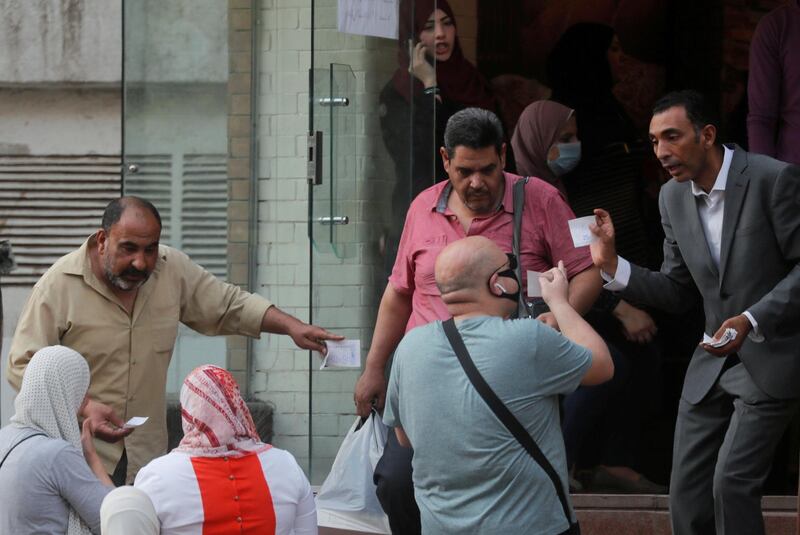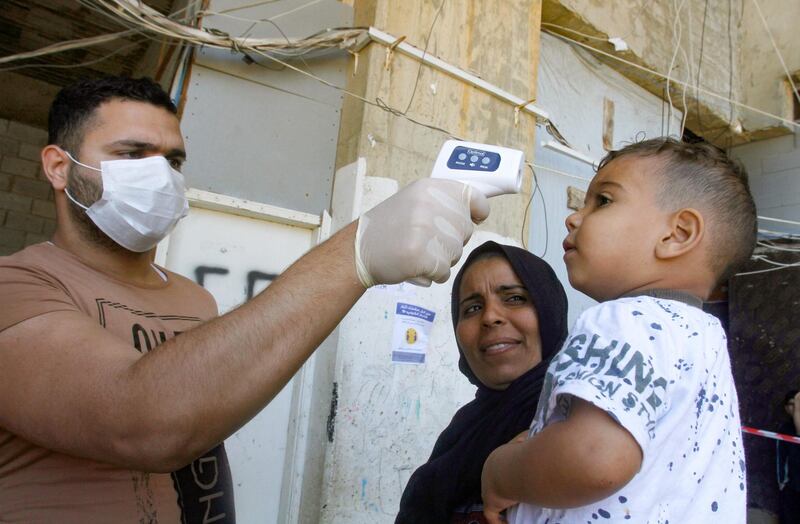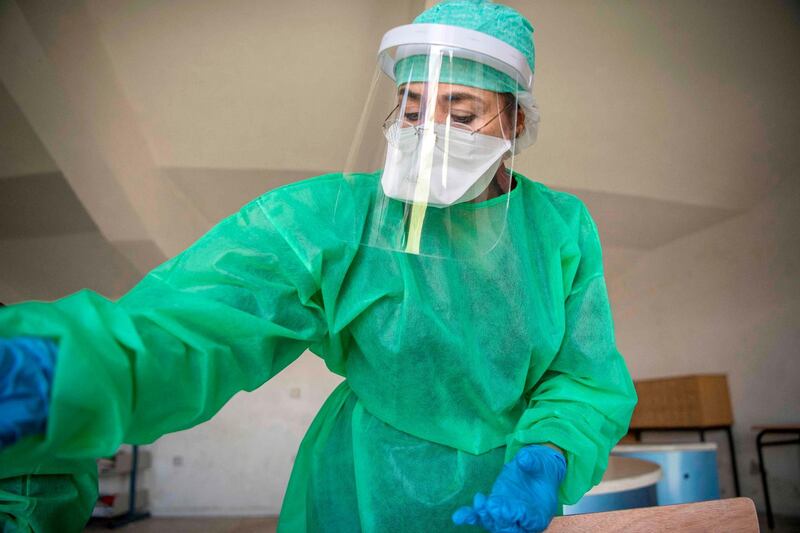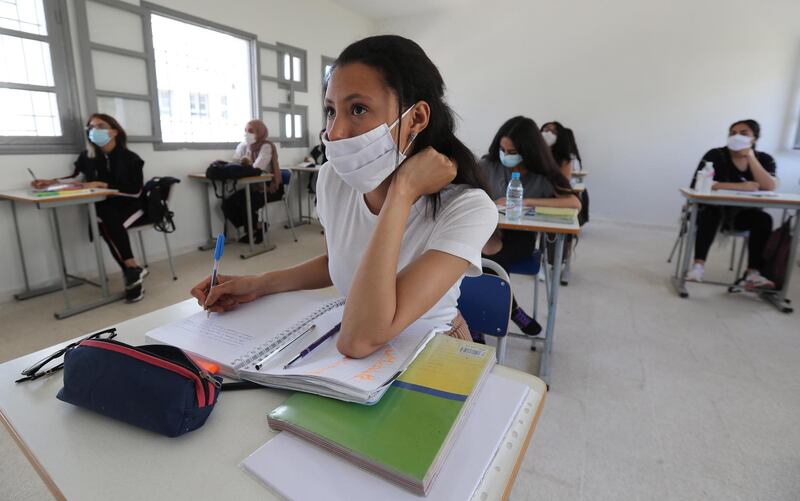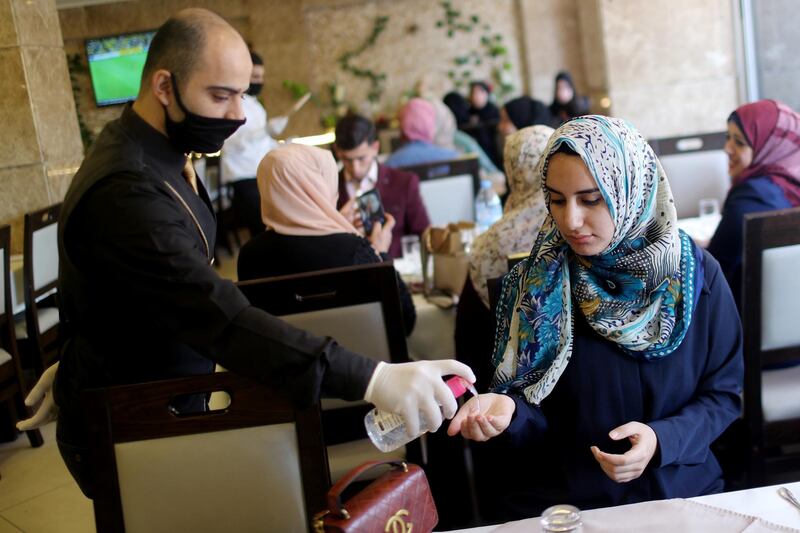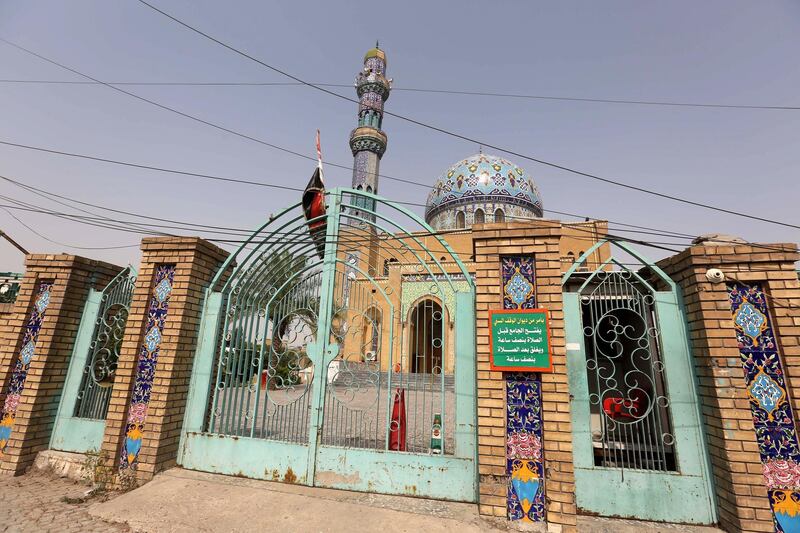The daily number of new Covid-19 infections in Egypt crossed the symbolically significant threshold of 1,000 on Thursday, a grim milestone that is likely to put pressure on the government to reconsider or slow down plans to gradually reopen the country.
The spike in the number of infections prompted Prime Minister Mustafa Madbouli to step up government efforts to contain the disease, ordering the country's latest crop of medical students who graduated in March to start training in emergency medicine and managing intensive-care units before they are sent to hospitals treating Covid-19 patients.
He also ordered an update of the phone app that provides the names and addresses of these hospitals, and authorised the hiring of 150 more staff to operate a hotline to answer questions about Covid-19.
_______________
Coronavirus in the Middle East
_______________
The government has announced a fine of 4,000 pounds (Dh928) for anyone not wearing a face mask on public transport, in malls and in government departments starting this Saturday.
Mr Madbouli has said the government intends to allow life to gradually return to normal starting next month, arguing that, until a vaccine is found for Covid-19, Egyptians must learn to live with the disease while taking precautions such as social distancing and maintaining hygiene. His approach mirrors that embraced in parts of western Europe and the United States, where the economy was reopened after weeks of full lockdown designed to contain the spread of the coronavirus that causes Covid-19.
The reopening carries the risk of causing a resurgence of infections, but it also prevents the economy from tanking. In Egypt, businessmen and industry captains have warned that the number of victims of an economic meltdown would be far greater than that caused by Covid-19 when the economy is fully reopened.
"In view of today's number of infections, any relaxation of the lockdown measures is a premeditated crime," opposition politician Talat Fahmi defiantly wrote on Facebook on Thursday, alluding to Mr Madbouli's plans.
One of the government's staunchest supporters, popular talk show host Amr Adeeb, also aired doubts about Mr Madbouli's plans.
"Please forgive me but I have a serious question. I am not a scientist or an expert, but I have a very logical question: How are we reopening the country while the number [of infections] is jumping like this," he wrote on Twitter. "Supposedly, we should do more closing down. That's what we have witnessed across the world: We close down when we have higher numbers and we open up when we have fewer numbers. Am I missing something here?"
Mr Adeeb's concerns were validated when the Health Ministry announced on Thursday night that 1,127 people were infected by Covid-19 in the previous 24 hours, 217 more than the previous record registered on Wednesday.
Egypt's total Covid-19 cases stood at 20,793 as of Thursday night, while the death toll rose by 29 to 845.
The continuing surge in infections suggests that the worst of the pandemic in Egypt is yet to come, placing immense pressure on a fragile health sector in this nation of 100 million people.
The government says it is prepared to deal with a much larger number of infections if need be and dismisses allegations that its handling of the pandemic has been less than efficient. President Abdel Fattah El Sisi says the crisis has been handled "professionally and scientifically" and that Egyptians need to more diligently observe preventive measures to spare the country the pandemic's full range of ravages.
The president's medical adviser, Mohammed Awad Tageldeen, was quoted in the local press as saying the pandemic was likely to peak by mid-June.
He did not elaborate nor say how he arrived at this conclusion.
Mr El Sisi, for his part, called on Egyptians to unite in the face of the pandemic.
"We stand together at an important juncture in the nation's history in the face of the coronavirus," he wrote on his Facebook page. "That requires everyone to continue to stand shoulder to shoulder and show solidarity to peacefully pull through this crisis and safeguard the successes we have achieved in various fields."
